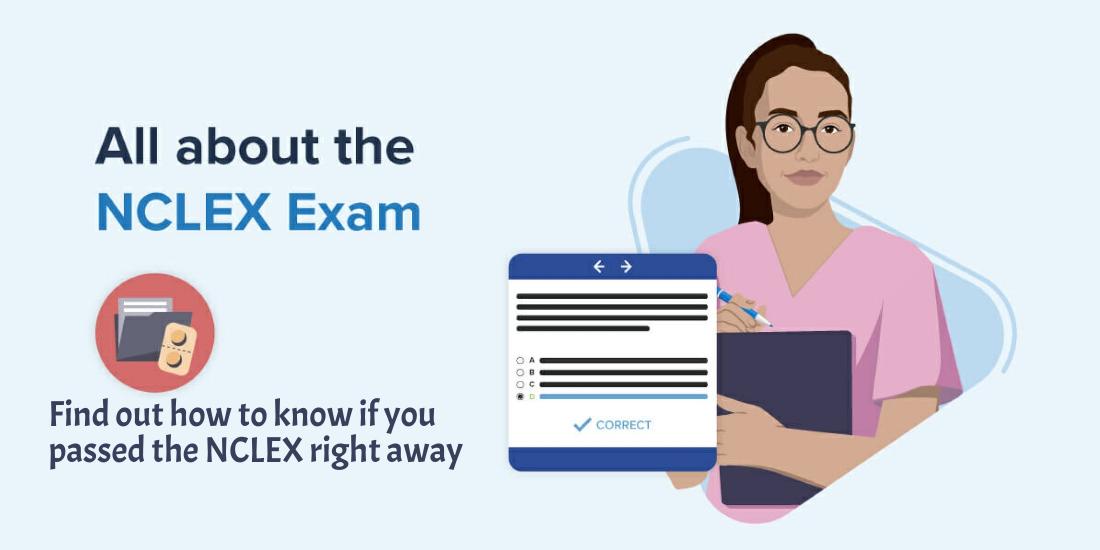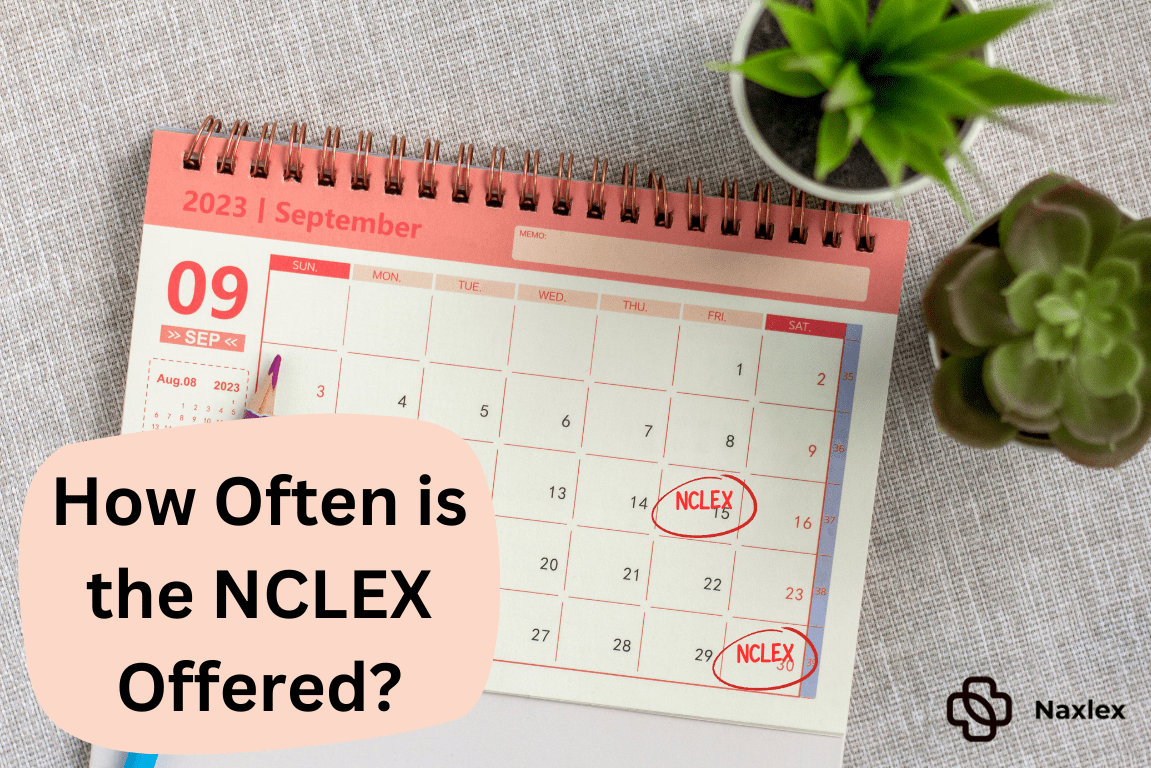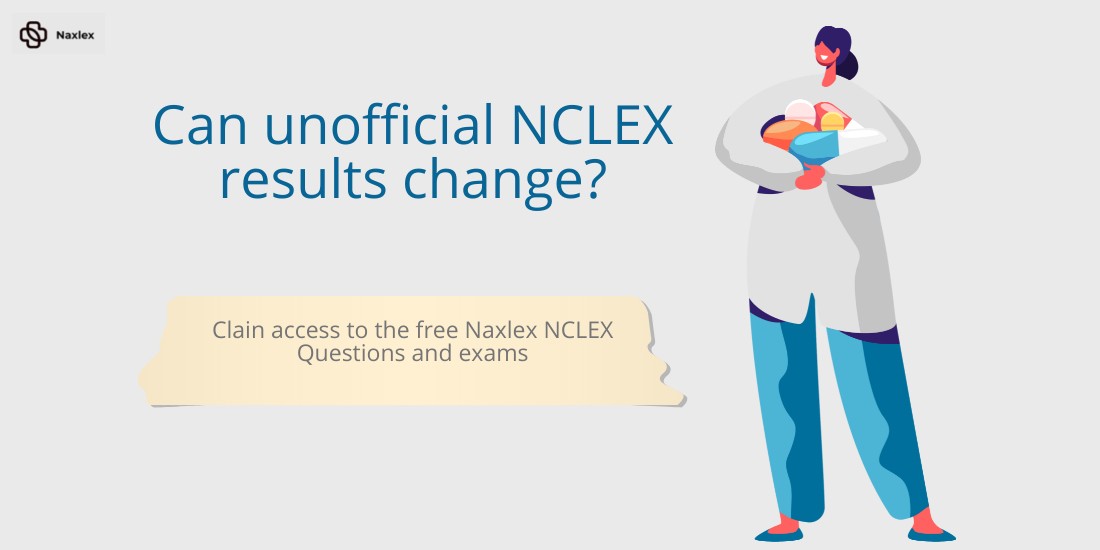Candidates taking the NCLEX test are curious to know the outcome upon completion. But is there a way to know if you passed the NCLEX right away? Although there are hints that can tell if you passed the NCLEX right away, the only compelling way to know if you have passed the exam is to get your quick results or wait for the official test report.
While knowing you passed the NCLEX right away is great, an equally important thing you must do is prepare well for the exam. Effective preparation is the number one reason to know you passed the NCLEX right away. A top test preparation resource that can help you get a guaranteed A in the NCLEX right away is Naxlex. Join Naxlex today for your success.
It can be a frightening experience to take exams, especially one that determines your entry into the nursing practice. As such, it’s natural to want to know if you passed the NCLEX right away. While it is impossible to know the grade you scored right away, there are pointing factors that can give a hint of whether you passed the NCLEX right away or otherwise.
Tips to know if you passed the NCLEX right away after the exam
It will take some time before you can access your test results, so knowing the potential signs of a successful NCLEX experience can give you a wonderful experience awaiting the actual test report. Discussed below are some ways of determining if you passed the NCLEX right away.
Your quick test results show that you passed.
The NCLEX issues quick results within 48 hours or two business days after the test. If you take the NCLEX, you can check the quick results to see how you performed in the exam. The quick results are computer-generated test reports that cannot be used for registration as a nurse. However, these results are deemed accurate. You can use the NCLEX quick results to know if you passed the NCLEX right away.
You will follow a short process to access the NCLEX quick results. Firstly, log into your Pearson VUE account and tap “my account.” Once there, navigate to “Quick Results.” There is an access fee of $7.95 to view the quick results. It’s important to know that the quick results are provisional, and thus, you will have to wait for the official results from the National Council of State Boards of Nursing (NCSBN) to know if you passed the NCLEX right away.
Your Pearson VUE account does not have an option to book the test.
Candidates who fail the NCLEX test have the option to book the exam on their Pearson VUE accounts. A few hours after doing the exam, login to your Pearson VUE account. If Pearson VUE determines you passed the NCLEX right away, you won’t book the exam on your account.
You can confirm whether you can rebook the exam or not by trying to reregister for the NCLEX test. If Pearson VUE does not allow you to reregister, however, you’ll be allowed to access your previous exam records, an indicator that you passed the NCLEX right away and look forward to receiving your nursing license.
You do not receive a new authorization to test (ATT)
Candidates who fail the NCLEX right after will receive an ATT to retake the test. If you don’t receive an ATT or other information from NCSBN after doing the NCLEX, that’s a good sign to know you passed the NCLEX right away.
You receive a temporary license or license number.
The issuance of temporary licenses or license numbers occurs within a few days of passing the NCLEX. However, it can take several weeks before a permanent license is processed. Depending on your state of residence, your license could be updated before you receive your official test results. If you can see a nursing license under your name, it’s a positive sign that you passed the NCLEX right away.
Sure way to know if you passed the NCLEX right away after
The kind of questions you take in the NCLEX can give clues about the test outcome. However, it is difficult to know if you passed the NCLEX right away. While the hints shared above can boost your morale as you wait for the final results, the only sure way to tell if you passed the NCLEX right away is to receive the actual test results.
Signs you performed well in the NCLEX right away
Performing well in the NCLEX is a positive sign towards a good score at the end of the exam. Achieving excellent performance calls for investment in time and quality learning resources. Utilizing top preparation guides equips you with the needed skills to pass the NCLEX right after. Other signs indicating you performed well in the exam are shared below.
Got challenging questions
NCLEX questions become more difficult as you answer them correctly. Progressively receiving difficult questions is a positive sign that you are doing well on the exam. However, this can only be done once you are well-prepared.
You received the minimum number of questions.
The questions you get on the NCLEX depend on your ability to give correct answers. As of 2024, the minimum number of questions is 85, while the maximum is 150. If the test shuts after you respond to the 85 questions, it can mean you have done well in the exam. However, the number of questions you get does not necessarily mean you passed or failed the test.
You finish the test fast.
The total time allocated for the NCLEX exam is 5 hours. Candidates must finish the exam within the given time. If you take a short time to complete the test, it’s a positive sign that you understood the content well and responded to the questions correctly.
Final word
The NCLEX is, without doubt, a paramount examination for nurses in the U.S. The exam can be challenging to many students, so knowing you passed the NCLEX right away can be encouraging for candidates waiting to enter the nursing profession. While there are some signs to know if you passed the NCLEX right away, the only sure way is to receive the official results. You can boost your chance of passing the NCLEX right away by using Naxlex, which guarantees an A in the NCLEX.




